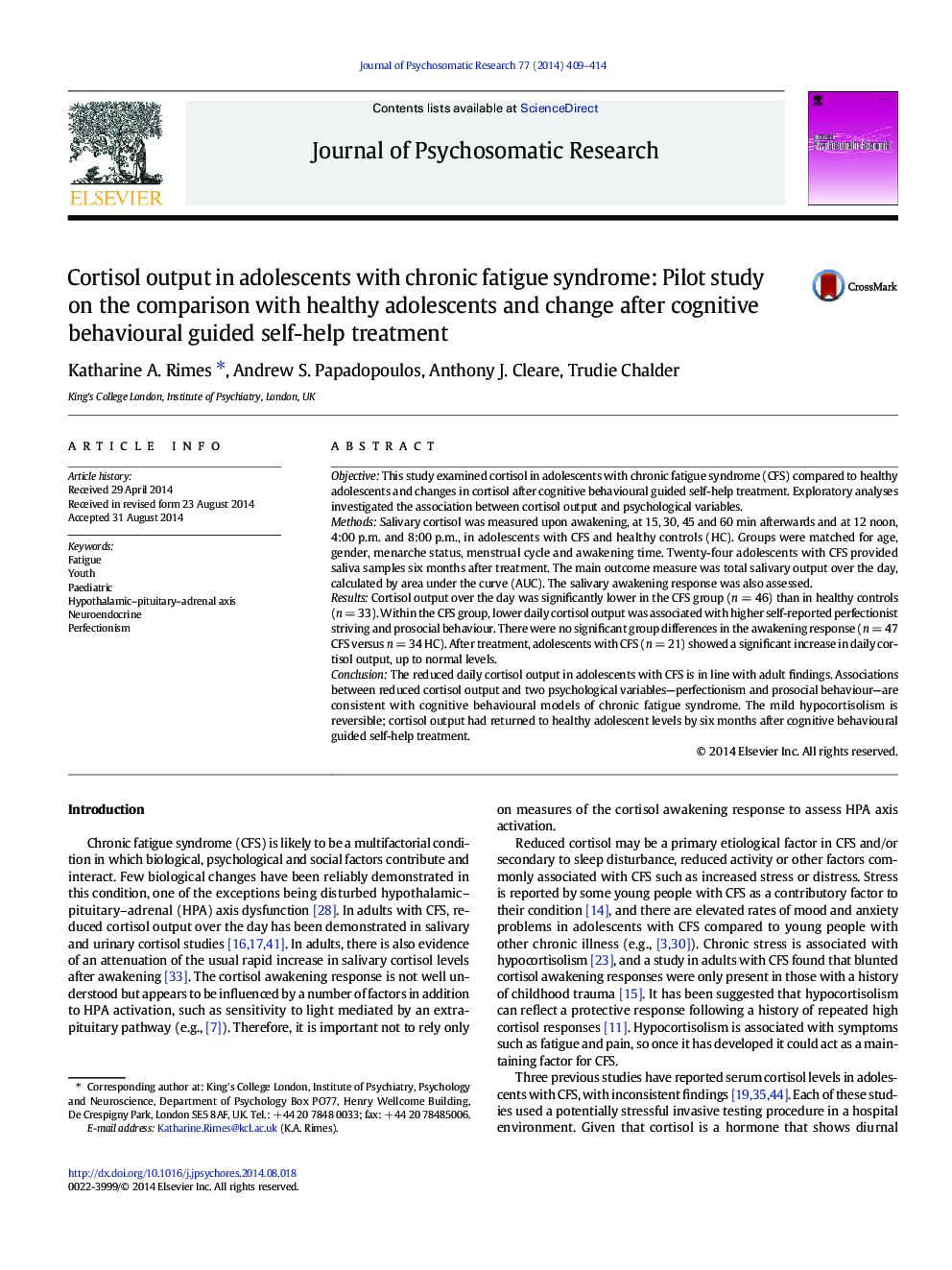| Article ID | Journal | Published Year | Pages | File Type |
|---|---|---|---|---|
| 949301 | Journal of Psychosomatic Research | 2014 | 6 Pages |
•Salivary cortisol was investigated in adolescents with chronic fatigue syndrome.•Reduced salivary cortisol output over the day was found.•Cortisol output was associated with perfectionism and prosocial behaviour.•The adolescents received cognitive behavioural guided self-help treatment.•By six months post-treatment, cortisol output had increased up to normal levels.
ObjectiveThis study examined cortisol in adolescents with chronic fatigue syndrome (CFS) compared to healthy adolescents and changes in cortisol after cognitive behavioural guided self-help treatment. Exploratory analyses investigated the association between cortisol output and psychological variables.MethodsSalivary cortisol was measured upon awakening, at 15, 30, 45 and 60 min afterwards and at 12 noon, 4:00 p.m. and 8:00 p.m., in adolescents with CFS and healthy controls (HC). Groups were matched for age, gender, menarche status, menstrual cycle and awakening time. Twenty-four adolescents with CFS provided saliva samples six months after treatment. The main outcome measure was total salivary output over the day, calculated by area under the curve (AUC). The salivary awakening response was also assessed.ResultsCortisol output over the day was significantly lower in the CFS group (n = 46) than in healthy controls (n = 33). Within the CFS group, lower daily cortisol output was associated with higher self-reported perfectionist striving and prosocial behaviour. There were no significant group differences in the awakening response (n = 47 CFS versus n = 34 HC). After treatment, adolescents with CFS (n = 21) showed a significant increase in daily cortisol output, up to normal levels.ConclusionThe reduced daily cortisol output in adolescents with CFS is in line with adult findings. Associations between reduced cortisol output and two psychological variables—perfectionism and prosocial behaviour—are consistent with cognitive behavioural models of chronic fatigue syndrome. The mild hypocortisolism is reversible; cortisol output had returned to healthy adolescent levels by six months after cognitive behavioural guided self-help treatment.
